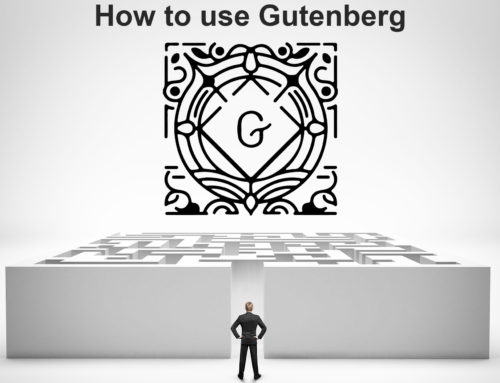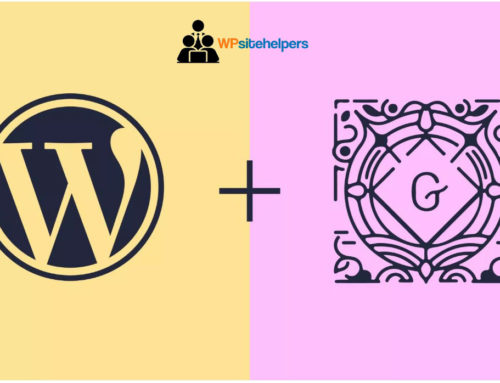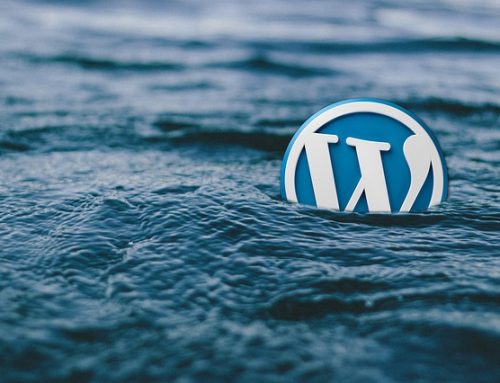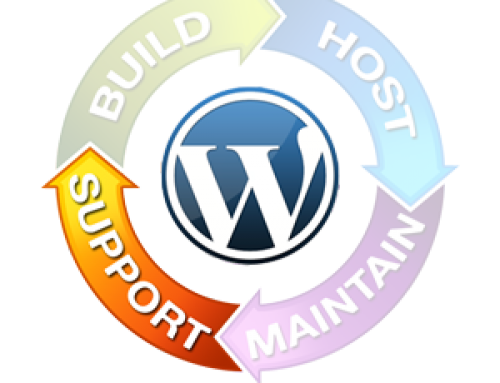I’ve been using WordPress, as a developer since 2008 and as a WordPress support professional, since 2010, so it’s no exaggeration when I tell you that I’ve seen just about every recurring WordPress problem you could imagine. What follows are seven of the most common issues I’ve seen over the years.
WordPress is a popular blogging tool used by business owners, celebrities, start-up companies, journalists, and many others. Indeed, it is one of the world’s most widely used website content management systems (CMS). What’s more is that you can reach millions of people online by utilizing this powerful tool.
While WordPress is an amazing CMS tool, it is certainly not free of flaws. However, the good news is that there are remedies for most of the issues that you may encounter on the CMS platform. Let‘s take a look at them.
Common Problems Associated with WordPress Sites
In my work as a WP support specialist, I’ve found there are seven issues that have come up over and over. Hence, if you’re going to encounter an issue as a WordPress site owner, there’s a good chance you could experience one or more of the problems mentioned below. So, be sure to take note.
- Penetrable website security. If you’re using WordPress for your website, then it’s important to understand that your website’s safety is not guaranteed. One of the reasons this happens with WordPress sites is that it’s an open source platform. As an open platform, we’re not dealing with a tightly guarded development process but in fact, one that is just the opposite. Hence, its strengths and weaknesses are all common knowledge to nearly anyone who knows their way around a website. As such, when hackers write malicious scripts for WordPress sites they often do so knowing that most WP users never remove the default username ‘admin’; this means all they need to do is to enter the correct password, and they’re in. And believe it or not, the ‘brute force’ scripts or bots can try a nearly endless array of combinations until they arrive at the one that works. Once in, they often change the password and completely take over your site. The bottom line is that you either need to come up with a really unique password or use a password generator. It’s also prudent that you keep your password a secret and share it with no one. These steps may sound over the top, but often your password is the only thing standing between you and the safety of your site.
- WordPress tends to load slowly. It is true that WordPress makes it easy to update your website. However, what you may not know is that WordPress sites have a tendency to load slowly. The load time is critical for several reasons. Chief among them is that most visitors will not give you the benefit of the doubt if your site loads slowly. Also, you have to keep in mind, that not all users are patient enough to wait more than 15 seconds to view your site’s content. In addition to your visitors, you must also contend with Google, as page load speed is a ranking factor, i. e. , websites that load slowly may have difficulty rising to the top of the search engine results. Fortunately, there are several ways to fix this problem. If your WP site takes a long time to load, the first item to look at is your plugins. If they are out of date, updating them could speed things up. Likewise, if you notice several unused plugins, it’s best to delete them so that they don’t slow your site down. You should also adopt the same approach with your themes. There are a number of great plugins out there that can help to speed up your site. Here is an excellent article by WP Beginner to help you learn more and make the best decisions about speeding up your WordPress website.
- Your site may sometimes contain 404 pages. Although WordPress is a powerful CMS tool, there are times when your pages are down or cannot be reached by your users. Too many 404 errors (Page Can not Be Displayed) can make your site look less credible. They can lead to a drastic drop in views. Sometimes a minor settings adjustment can ‘break’ your website’s architecture. For example, if one day you decide to use a custom permalink structure instead of what was there prior to the change, anytime someone lands on one of your pages with the old URL structure, they will hit a 404 error. Of course, there are plugins that you can use to permanently redirect your old URLs to the new ones. Alternatively, you can also have your webmaster do this by modifying your . htaccess file.
- WordPress has no built-in backup system. Storing important information online is efficient. However, it can also be highly risky. If you don’t want to lose this vital data, you must secure backups. But unfortunately, WordPress doesn’t come with a built-in backup system. However, you are free to install your own backup plugin. There are several plugins that can do this for you. While the best ones are not free, you’ll find that they’re well worth it. Why? There’s no telling when a website’s going to crash, so you may as well address the issue now rather than later. No one wants to start their site from scratch.
- Maintenance mode on WordPress. When updating the contents of your website, WordPress will display a prompt to the viewers that the site is undergoing maintenance. Most of the time, you’re the only person who sees this message. However, if you update or alter your website during peak traffic times, your visitors may encounter the message, as well. A simple fix is to only perform updates or other WP alterations during low traffic periods. Otherwise, you run the risk of giving your customers the wrong impression and possibly losing them forever.
- Plugin conflicts. A nice thing about WordPress is that you can easily extend your site’s functionality with plugins. However, there’s also a downside to using plugins. Occasionally you’ll run into situations where one or more plugins won’t play well with each other or where a plugin conflicts with your theme. A tell-tale sign is when everything on your website works perfectly until you install a certain plugin. However, if you’re not sure whether you’re dealing with a plugin conflict, you can deactivate your plugins one by one and see if the problem goes away. If you’re able to isolate the problem to a single plugin, you can delete it and say goodbye to the conflict for good.
- Some free WordPress themes and plugins contain malicious code. Themes are essential in making your website look unique and beautiful to your visitors. WordPress houses thousands of themes that you can choose from for your site. However, not all of these themes are safe to use. You should be careful when adding third-party developed themes and plugins on your website; because you might unintentionally expose confidential information to ill-intended people. Don’t sacrifice the security of your site for appearance’s sake. It is better to stay safe than regret it at the end of the day. Despite these problems, WordPress continues to soar in popularity. And with good reason, it’s a powerful tool that has made great websites accessible to the masses.
Who Should Use WordPress
You should dispense with all notions of WordPress only being a simple blogging tool. WordPress developers have made the tool so much better than before. There are many things you can do with WordPress, and blogging is only a tiny fraction of it.
Furthermore, since it’s free, anyone can use WordPress since; that includes those interested in blogging, an online business, online marketing, website creation or other purposes.
The most common use for WordPress today is a Content Management System (CMS). A CMS will allow you to update, edit, input, and delete data from your website. In short, it grants you full control over your blog or website.
Benefits of Using WordPress
Many people, especially those with start-up businesses, dream of having their own website. You can use your website to promote your products, services, or even just share what you love. Although there have been several online promotion tools before WordPress, they are significantly more costly and difficult to maintain.
In the past, managing a website was not an easy task. In many instances, you had to know about coding, which is not that easy to learn. That is one of the limitations faced by many who want to create their website. But you do not have to worry about that anymore because there are many content management systems available today. An excellent example of a CMS that does not require any coding knowledge is WordPress.
The list of benefits that you can get from using WordPress goes on endlessly. There are just so many things you can do with this online tool. You will be amazed at how functional WordPress is when you start using it.
Here are some examples of the benefits you can get by using WordPress:
Customizable Layout – Let go of boring stock website designs found on the Internet. With WordPress, you can now create and build your kind of site. You have the ultimate freedom to create the website and determine the appearance that will be seen by your audience.
If you are fond of cutesy things, you can create your site that way. On the other hand, if you are promoting gears and technology, you can also design a website quickly with that concept in mind. There’s no limit as to what you can do with the appearance of your site, so you will enjoy creating your very own unique website.
Numerous Plugins – WordPress allows you to add extensions to the basic services offered on your website. This allows your site to become more accessible and functional for your users and audience. At the moment, you can choose from 10,000 available plug-ins that will make your services smoother and more efficient.
Easy to Update Content – This is probably the best thing there is about WordPress. You do not have to go through a lot of procedures just to update a single line from your website. WordPress allows you to add, delete, or edit the content of your site with only a few clicks; this means that you can even have real time updates on your website if you want. Your audience or customers will be happy to see a site that reflects the current inventory level of your online shop, or the current trend you are following.
Search Engine Friendly – Major search engines like Google, Yahoo, and Bing love websites developed through WordPress. The reason for this is simple. Automattic, the makers of WordPress care about SEO and use their knowledge to build in SEO friendly architecture. For example, page and post titles use the <h1> tag. URL’s are friendly and more.
That’s a known fact to all Internet users. Information will no longer be relevant to customers or users if it is late. No matter how important the information, if it is late, it will almost always be considered useless.
At the end of the day, all content management platforms have their own set of issues. However, what matters is that you have an idea of which problems to expect so that you might be in a position to fix them later.





